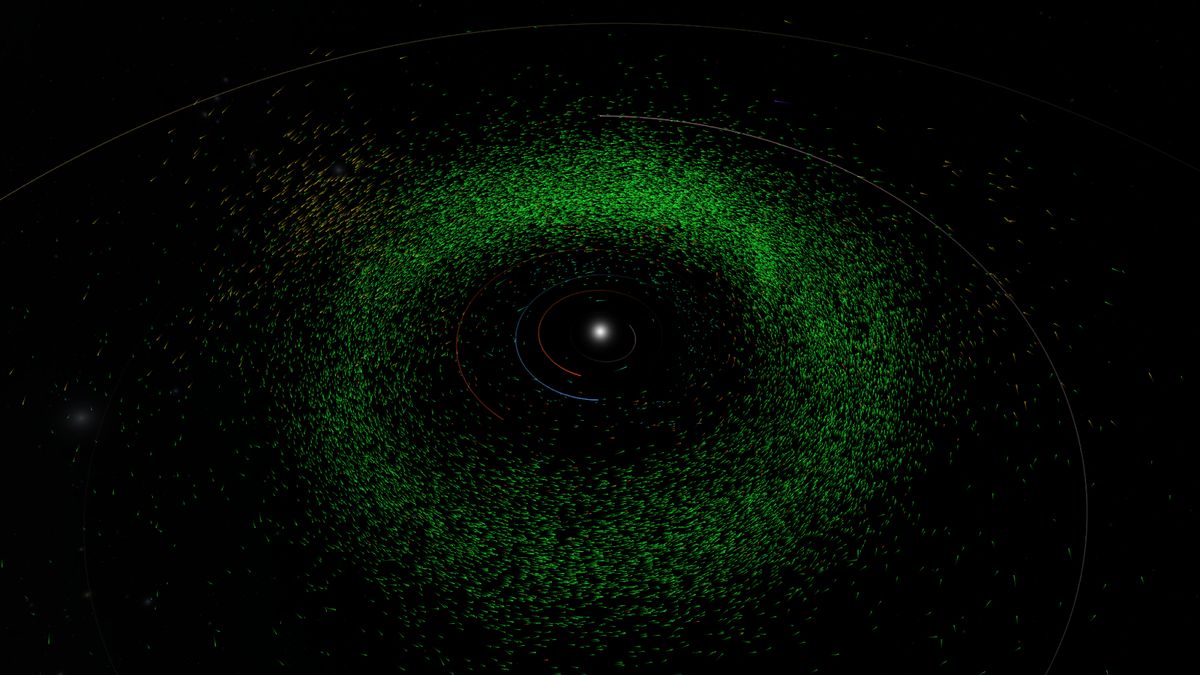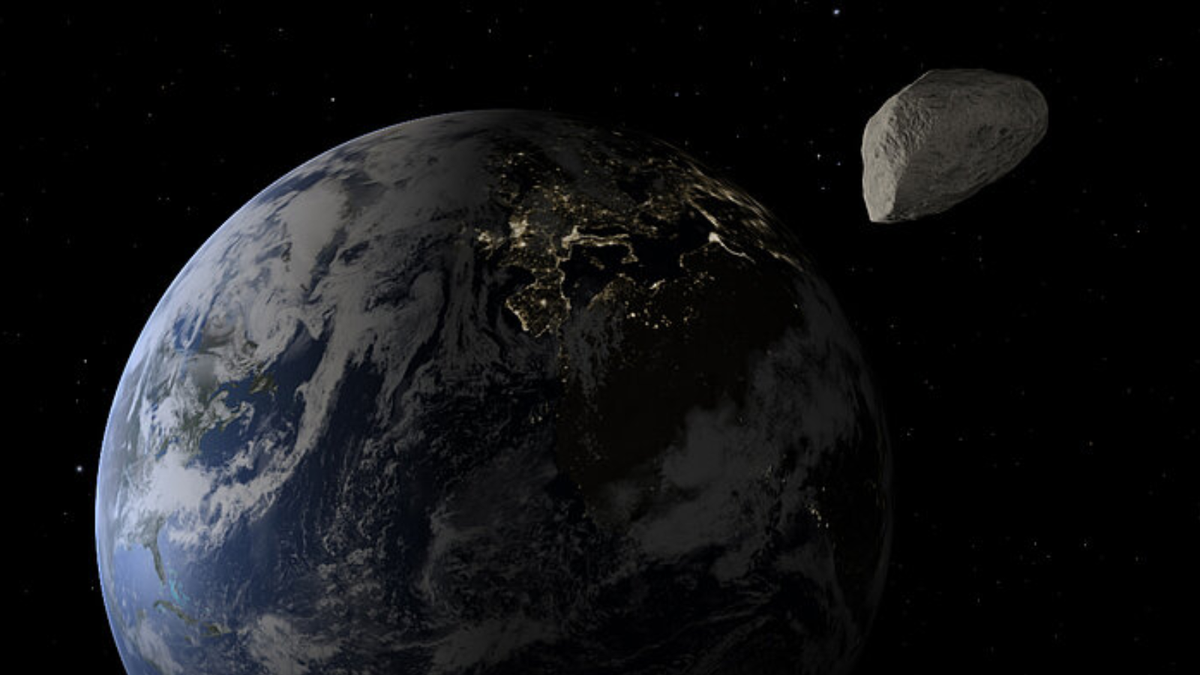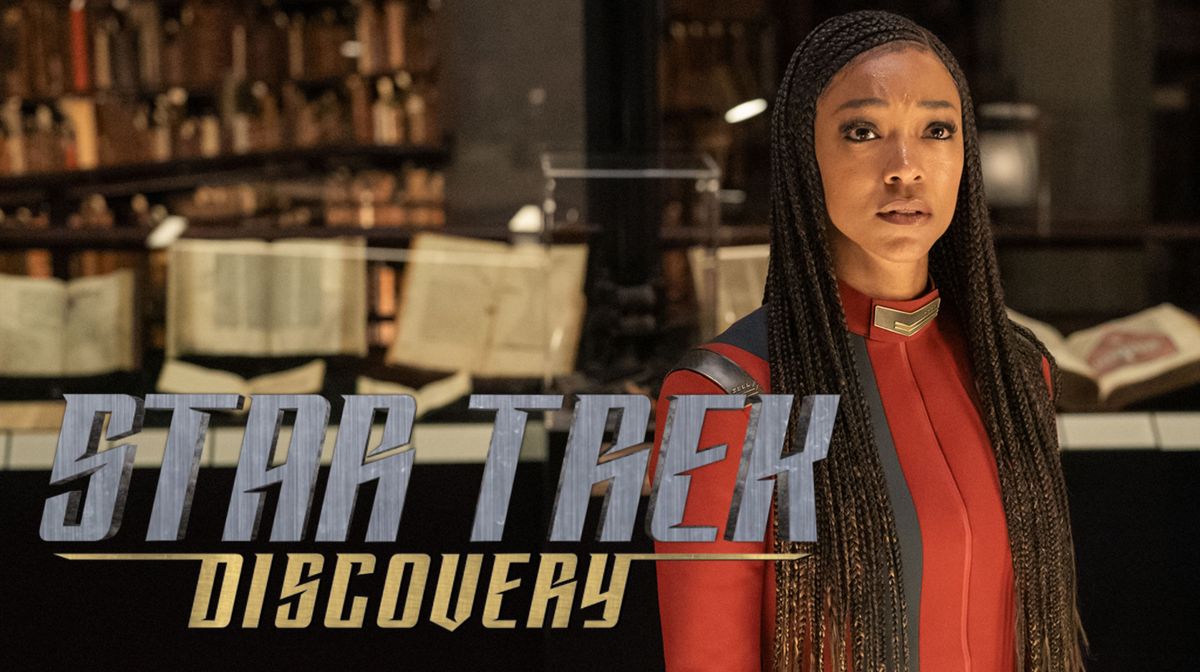A New AI-Powered Algorithm Surfaces Over 27,000 Asteroids in Our Solar System
An innovative AI-powered algorithm has identified more than 27,000 asteroids in our solar system that were previously overlooked in existing telescope images. This remarkable discovery has resulted in the creation of a comprehensive catalog of these celestial bodies. The team of scientists responsible for this breakthrough affirms that the algorithm simplifies the process of locating and tracking millions of asteroids in our solar system, including those that pose a potential threat to Earth. The ability to pinpoint such asteroids well in advance is crucial in order to devise strategies to deflect them and prevent potential collisions with our planet.
The Bounty of Asteroids in Our Solar System
The majority of the newly identified asteroids are situated in the asteroid belt located between Mars and Jupiter. This region has already been extensively studied, leading to the cataloging of over 1.3 million rocky fragments over the past two centuries. In an astonishing revelation, the recent discovery of these asteroids was achieved within a span of about five weeks. Among these newfound asteroids, approximately 150 traverse orbits that bring them in proximity to Earth’s orbital path. However, it is important to note that none of these “near-Earth asteroids” are currently on a collision course with our planet. Additionally, some of these asteroids belong to the classification known as Trojans, which accompany Jupiter as it orbits around the sun.
It is pertinent to mention that the observations of these asteroids are pending submission to and approval by the International Astronomical Union’s Minor Planet Center, the official entity tasked with overseeing asteroid discoveries.
Revolutionizing Astronomical Discoveries with AI
Traditionally, astronomers identify new asteroids by meticulously examining different sections of the sky using telescope images obtained throughout the night at periodic intervals. While celestial bodies such as planets, stars, and galaxies appear stationary from one image to the next, asteroids manifest as moving specks of light. These distinctive movements are flagged, verified, and subsequently used to determine the orbits of the asteroids for ongoing monitoring.
Recognizing the complexity and enormity of this task, the executive director of the Asteroid Institute, Ed Lu, emphasized the pivotal role of AI in streamlining asteroid detection. He asserted that AI tools tailored for asteroid searches are rapidly approaching levels of sophistication that surpass human capabilities. The newly developed algorithm dubbed Tracklet-less Heliocentric Orbit Recovery (THOR) meticulously analyzed over 400,000 archival images of the sky housed by the National Optical-Infrared Astronomy Research Laboratory (NOIRLab).
Equipped with the ability to scrutinize vast amounts of data, the algorithm operates by examining clusters of images captured within a 30-day timeframe. Leveraging a substantial dataset, THOR can identify and link up to 1.7 billion light dots present in a single telescope image. Its unique methodology involves tracking a specific point of light across multiple images to ascertain if the specks correspond to the same object. This process often indicates the presence of an asteroid in motion through space.
Ed Lu elucidated that their team’s focus is centered on data science rather than direct telescope operations. The utilization of the algorithm allowed researchers to identify 100 asteroids in existing telescope images back in 2022. Moreover, various astronomical teams have leveraged AI tools to discover new asteroids, underscoring the pivotal role of artificial intelligence in expanding our understanding of the cosmos.
Image/Photo credit: source url





